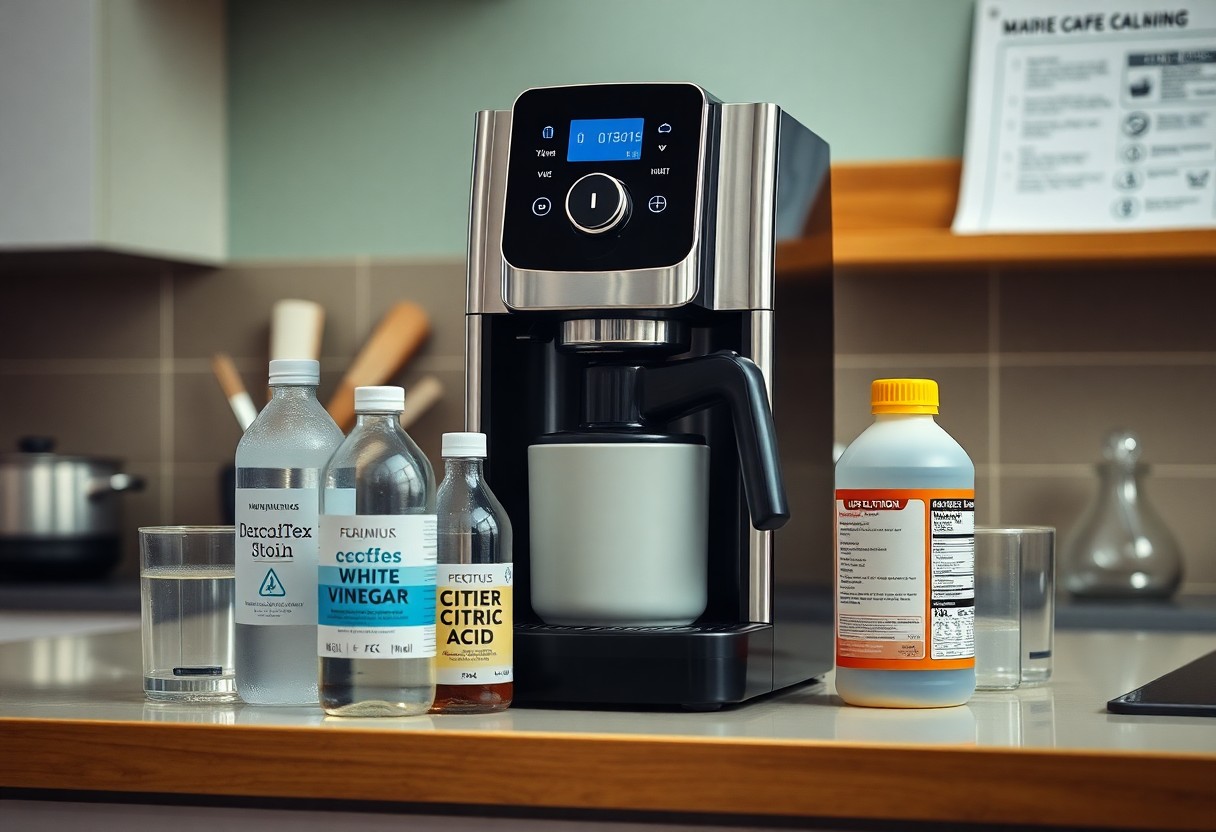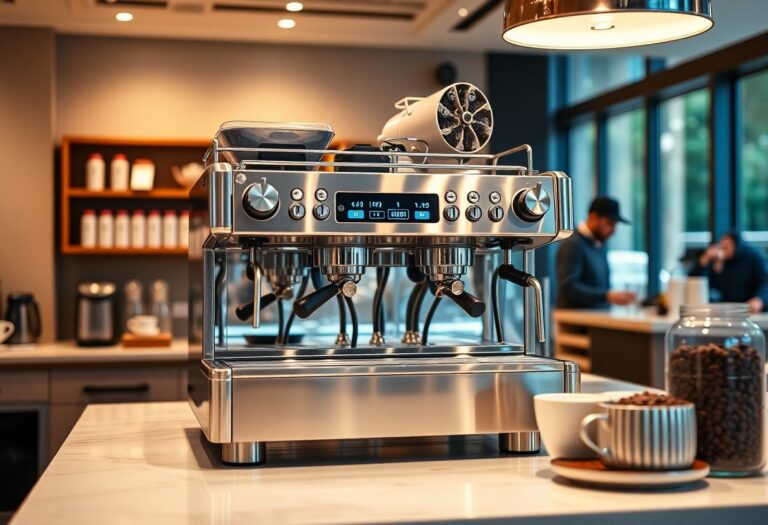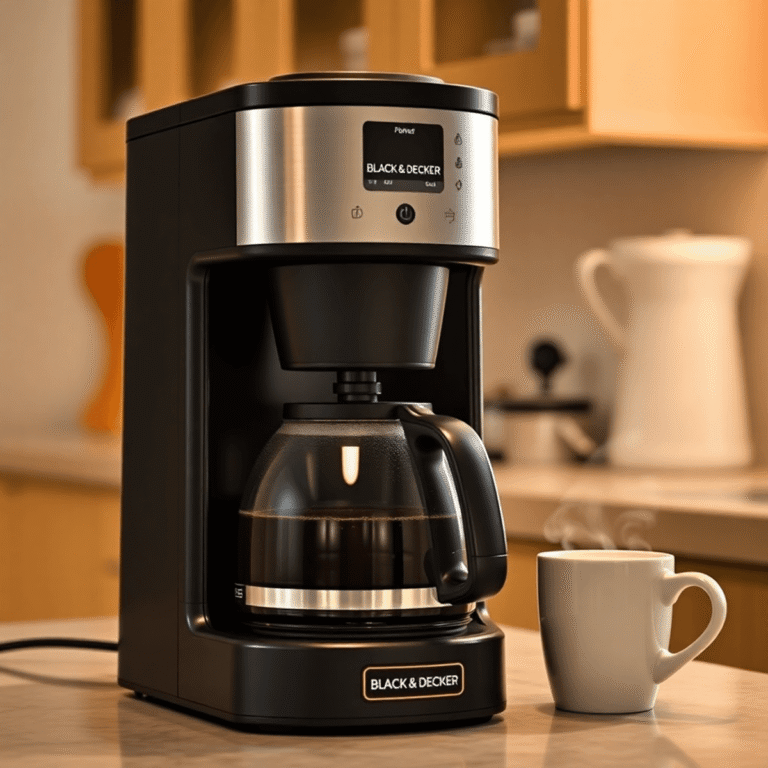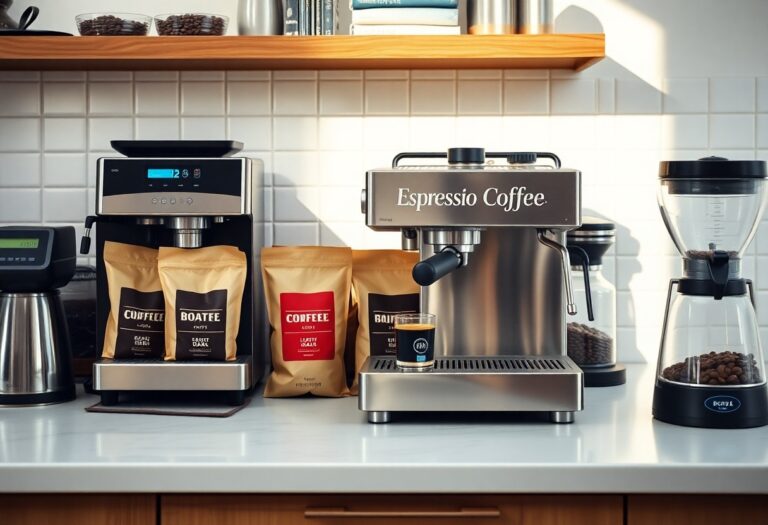What Can I Use to Descale a Coffee Machine – Descaling Agents
You may find your coffee machine in need of descaling to ensure it brews the best cup of coffee possible. The buildup of mineral deposits can affect both the taste and efficiency of your machine. Using appropriate descaling agents is necessary to avoid damaging your equipment. Common options include vinegar, citric acid, and commercial descalers specifically designed for coffee machines. Each has its benefits and drawbacks, so it’s important to choose one that suits your machine’s needs while effectively removing limescale and keeping your coffee tasting delicious.
Key Takeaways:
- Common descaling agents include white vinegar, citric acid, and commercial descaling solutions specifically designed for coffee machines.
- Always follow the manufacturer’s instructions regarding descaling frequency and the type of agent suitable for your coffee machine.
- Descaling helps to remove mineral buildup that can affect the flavor of your coffee and the performance of your machine.
- Make sure to rinse the machine thoroughly after descaling to eliminate any residual flavor from the descaling agent.
- Regular maintenance through descaling can extend the lifespan of your coffee machine and ensure consistent brewing quality.
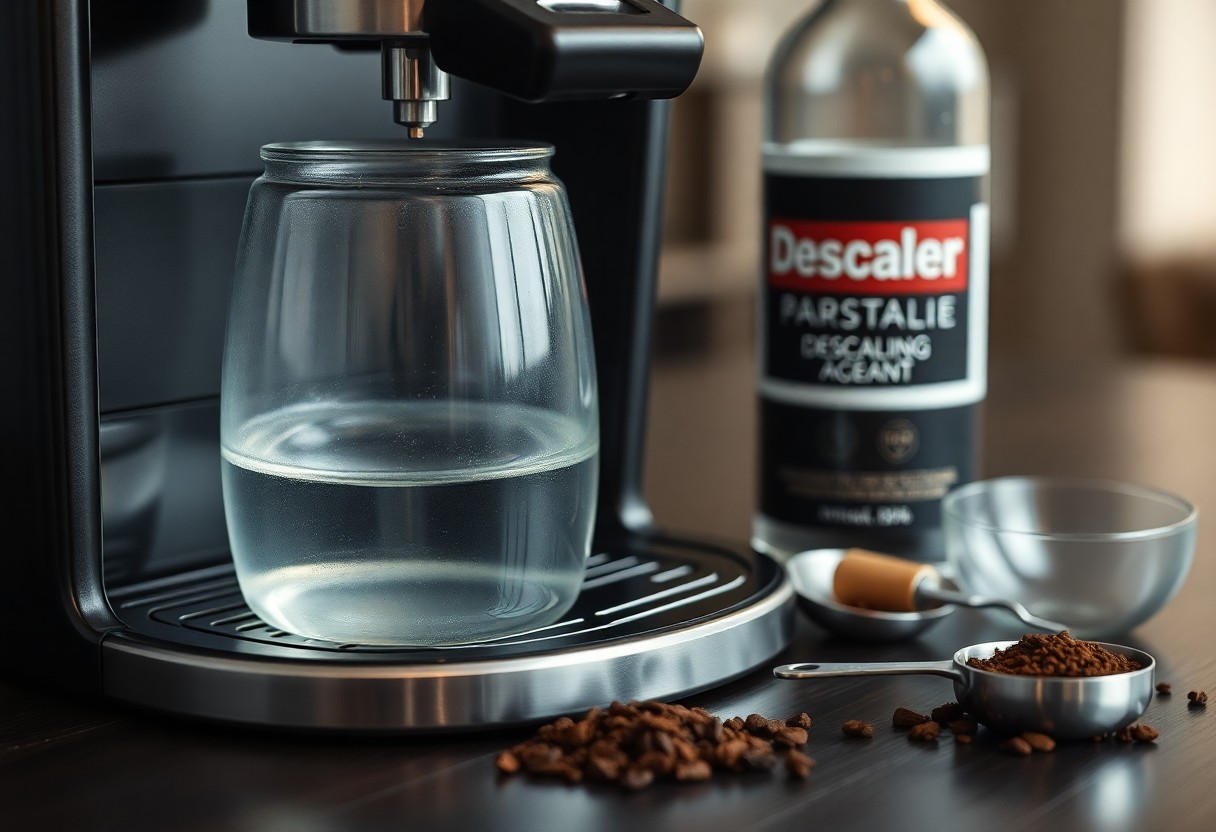
The Chemistry of Descaling Agents
Understanding the chemistry behind descaling agents can enhance your coffee machine maintenance routine. These agents typically contain acids that dissolve the calcium carbonate found in mineral build-up. When you run a descaling solution through your machine, these acids react with the minerals and effectively break them down, ensuring that your coffee maker operates smoothly. In many cases, homemade solutions can be just as effective, depending on the concentration of active ingredients and exposure time.
How Acids Fight Mineral Build-Up
Acids, such as citric and acetic acid, neutralize the alkaline properties of mineral deposits that accumulate in your coffee machine. By lowering the pH, these acids enable the breakdown of limescale, allowing you to rinse away the residue easily. This reaction not only restores functionality but also enhances the taste of your brewed coffee.
The Role of Citric Acid and Vinegar
Citric acid and vinegar are two popular options for descaling thanks to their effectiveness and availability. While both are natural acids, citric acid is often preferred for its lower smell, making it suitable for use in home kitchens. Vinegar, although effective, can leave a lingering odor that some may find off-putting during the brewing process.
Citric acid, derived from citrus fruits, has strong chelating properties that not only dissolve limescale but also prevent it from re-depositing. You can mix citric acid with water for a potent descaling solution that’s both effective and easy to prepare. Vinegar serves a similar purpose due to its acetic acid content; however, ensure to use distilled vinegar for optimal results, as stained solutions may deposit residue. Both options are cost-effective and eco-friendly, making them ideal choices for maintaining your coffee machine’s longevity.
Common Household Descaling Solutions
Several common household items can effectively descale your coffee machine. You likely have some of these solutions in your kitchen already. These alternatives are not only economical but also environmentally friendly, providing a simple way to maintain your coffee machine without harsh chemicals.
Vinegar vs. Baking Soda: A Comparative Analysis
| Vinegar | Acidic nature helps dissolve mineral buildup; widely available, but may leave an odor. |
| Baking Soda | Neutralizes odors and cleans through abrasion; less effective on tough scale compared to vinegar. |
Using Lemon Juice for a Natural Clean
Lemon juice is another natural option for descaling your coffee machine. The citric acid in lemon juice acts similarly to vinegar, efficiently breaking down mineral deposits while imparting a fresh, pleasant scent during the cleaning process.
To use lemon juice, mix equal parts of freshly squeezed lemon juice and water. Pour this mixture into your coffee machine’s water reservoir, then run a brewing cycle. The acidity in the lemon juice will dissolve the limescale, and the vibrant scent will linger, making your coffee machine smell delightful. Follow up with a couple of cycles using plain water to rinse away any residues. This approach not only cleans effectively but also keeps your machine in top shape without harsh chemicals.
Commercial Descaling Products: Are They Worth It?
Commercial descaling products often promise a quick and effective solution for stubborn mineral buildup in your coffee machine. While they can be convenient, weighing the costs against effectiveness is vital. Many users find these products streamlined compared to DIY methods, especially for those who prefer a no-fuss approach. However, understanding their value requires a closer look at ingredients and performance in comparison to home remedies.
Ingredient Breakdown of Leading Brands
Most commercial descalers feature similar key components like citric acid, acetic acid, or malic acid, which effectively dissolve limescale. For example, brand A relies heavily on citric acid, while brand B incorporates a blend of organic acids. You’ll also find additives designed to protect metal parts from corrosion. Before purchase, always check ingredient lists to ensure compatibility with your machine.
Effectiveness Compared to DIY Solutions
Comparing commercial descalers with DIY solutions like vinegar or baking soda can help you decide on the best option. Generally, commercial products claim higher efficiency and faster results. In many instances, they work well on tough limescale, where DIY methods may fall short. However, frequent use of stronger acids can lead to long-term wear on your machine parts.
Effectiveness of Commercial Descalers vs. DIY Solutions
| Aspect | Commercial Descalers |
|---|---|
| Time to dissolve limescale | Average 15 minutes |
| Cost per use | Approx. $2-$5 |
| Strength of acids used | Higher concentration |
| Potential for machine wear | Higher risk with frequent use |
While commercial descalers offer speed and efficiency, they aren’t always the gentlest on your machine. For regular maintenance, a less aggressive DIY solution like vinegar might suffice. Balancing convenience and machine longevity should guide your choice—after all, a healthy coffee machine means better coffee for you.
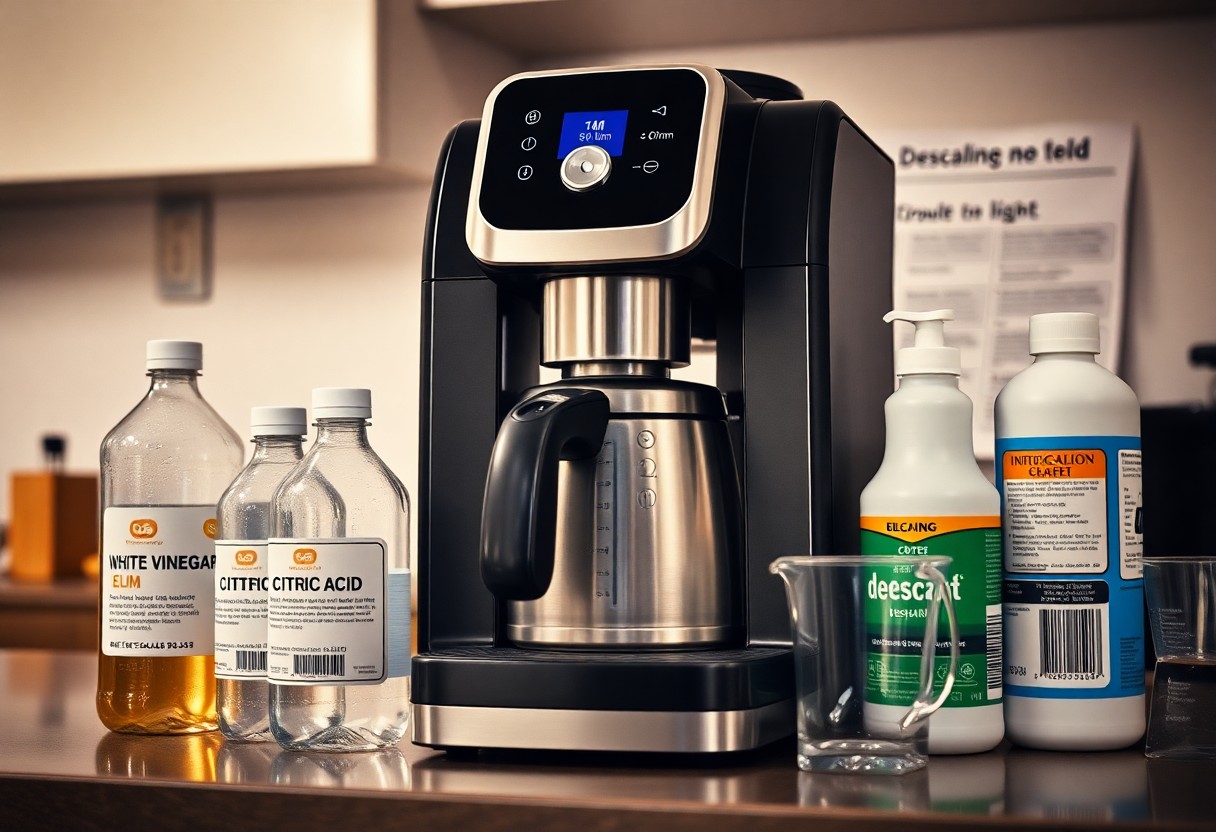
Step-by-Step Guide: Descaling Your Coffee Machine
| Preparation | Descaling Process |
| Gather your descaling solution, water, and a container. | Run the descaling solution through the machine as you would with water. |
| Ensure your coffee machine is turned off and unplugged. | Follow up with a water cycle to flush out any residue. |
| Fill the water reservoir with the descaling solution. | Monitor the process as it cleans the internal components. |
Preparing Your Machine and Ingredients
Start by gathering all necessary items: your chosen descaling agent, fresh water, a container to catch the liquid, and your coffee machine. Ensure that your machine is unplugged and powered off. Empty the water reservoir and remove any coffee pods or filters that may be inside. This preliminary step guarantees a thorough cleaning without any coffee residues interfering with the descaling process.
The Descaling Process Explained
Once your machine is prepared, it’s time to commence the descaling process. Pour the descaling solution into your machine’s water reservoir and fill the rest with water, following the instructions on your descaling product. Turn on the coffee maker and initiate a brewing cycle, allowing the mixture to flow through. This step breaks down mineral buildup, ensuring optimal performance in the long run.
During the descaling cycle, the solution works to dissolve limescale and mineral deposits that have built up over time. The process may vary depending on your machine model but typically takes around 15-30 minutes. After running the solution, it’s key to flush out the system with clean water, which typically requires at least two full cycles. Ensure to rinse thoroughly to prevent any lingering taste or residual chemicals from affecting your future brews. This routine not only enhances your coffee’s flavor but also extends the longevity of your coffee machine.
Best Practices for Maintenance Beyond Descaling
Maintaining your coffee machine goes beyond regular descaling. Along with descaling, you should routinely clean the water reservoir, brew basket, and carafe to prevent buildup and ensure flavor integrity. For a thorough clean, We Set Out to Find the Best Coffee-Maker Cleaner that effectively removes oil and residue. Regular maintenance will help your machine operate smoothly, extending its lifespan and enhancing your daily brew.
Preventive Measures to Reduce Mineral Accumulation
To minimize mineral buildup in your coffee machine, opt for filtered or distilled water instead of tap water. Hard water typically contains high levels of calcium and magnesium, which contribute to scaling. Regularly rinsing the machine’s components and keeping it clean after each use can significantly reduce mineral accumulation, ensuring consistent coffee quality.
When to Schedule Regular Descaling
Scheduling regular descaling is imperative to keep your coffee machine functioning properly. Ideally, you should descale your machine every three months or after every 30 to 40 brews, depending on usage and water hardness. If you live in an area with particularly hard water, more frequent descaling may be necessary to maintain optimal performance.
Observing signs of mineral buildup, such as slower brew times or unusual noises, can also guide your descaling schedule. By monitoring these indicators, you can proactively ensure that you’re descaling as needed, preventing potential damage and preserving your machine’s efficiency. Maintaining a consistent descaling routine keeps your coffee tasting fresh and prevents extensive repairs in the long run.
Summing up
To wrap up, descaling your coffee machine is important for maintaining its performance and longevity. You can choose from various descaling agents, including vinegar, citric acid, or commercial descalers specifically formulated for coffee machines. Each option has its advantages and suitability, so it’s important to select one that aligns with your machine’s manufacturer guidelines. Regular descaling will ensure that you enjoy the best flavor from your coffee while extending the life of your appliance.
FAQ
Q: What are descaling agents and why are they important for coffee machines?
A: Descaling agents are substances specifically formulated to dissolve mineral deposits, primarily calcium and limescale, that build up inside coffee machines over time. These deposits can affect the machine’s performance, leading to slower brewing times, inconsistent temperatures, and even affecting the taste of your coffee. Regular descaling helps maintain the efficiency and longevity of your coffee machine.
Q: Can I use vinegar as a descaling agent for my coffee machine?
A: Yes, vinegar is a commonly used natural descaling agent. White vinegar, in particular, is effective in breaking down limescale. To use it, mix equal parts of vinegar and water and run it through the coffee machine as you would with normal water. However, after using vinegar, it’s important to run several cycles of clean water through the machine to remove any residual vinegar taste.
Q: Are there specific commercial descaling products I should consider?
A: There are many commercial descaling products available, designed specifically for coffee machines. Brands such as Urnex, Dezcal, and Durgol offer effective solutions. These products typically contain citric acid or other proprietary formulas optimized for coffee machines. Always follow the manufacturer’s instructions on the packaging for the best results.
Q: How often should I descale my coffee machine?
A: The frequency of descaling largely depends on the hardness of your water and the usage of the machine. As a general guideline, it is recommended to descale every 3 to 6 months if you use the machine daily. If you notice a slower brew time or scaling on the inside of the machine, it may be time to descale, regardless of the set schedule.
Q: Are there any natural alternatives to commercial descalers?
A: Yes, there are several natural alternatives that you can use for descaling. In addition to vinegar, citric acid is a popular option. You can mix about 1-2 tablespoons of citric acid with water and run it through your coffee machine. Another option is using a combination of baking soda and water, though it may not be as effective for heavy limescale buildup. Just ensure to clean the machine thoroughly afterward to prevent any unwanted flavors in your coffee.

